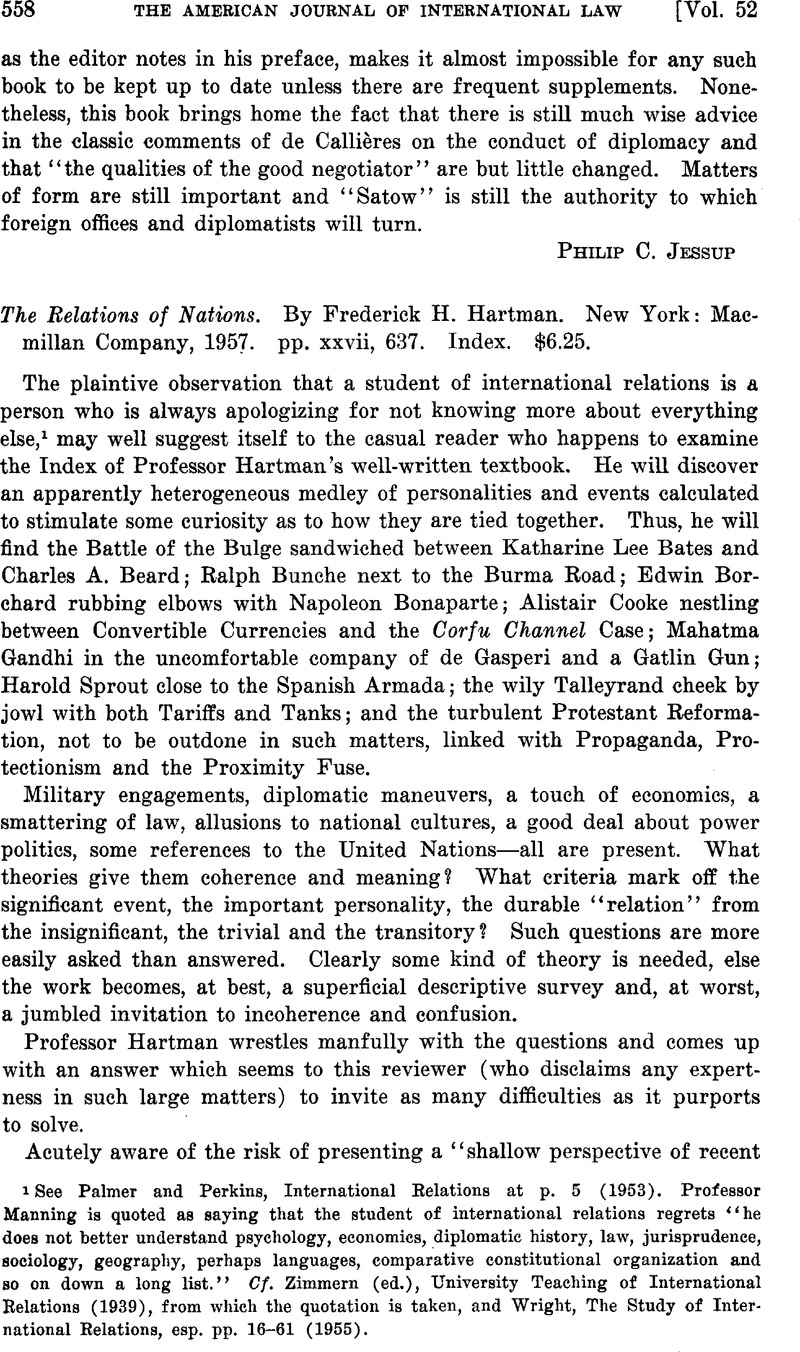No CrossRef data available.
Article contents
The Relations of Nations. By Frederick H. Hartman. New York: Macmillan Company, 1957. pp. xxvii, 637. Index. $6.25.
Published online by Cambridge University Press: 28 March 2017
Abstract

- Type
- Book Reviews and Notes
- Information
- Copyright
- Copyright © American Society of International Law 1958
References
1 See Palmer and Perkins, International Relations at p. 5 (1953). Professor Manning is quoted as saying that the student of international relations regrets “he does not better understand psychology, economics, diplomatic history, law, jurisprudence, sociology, geography, perhaps languages, comparative constitutional organization and so on down a long list . “ Cf. Zimmern (ed.), University Teaching of International Relations (1939), from which the quotation is taken, and Wright, The Study of International Relations, esp. pp. 16-61 (1955).
2 All quotations are from the Foreword at pp. vii and viii.
3 The effort by Quincy Wright, Harold Lasswell and others to bring greater precision to the concepts and rhetoric of international relations is, of course, well known. See Lasswell and Kaplan, Power and Society (1950), and Wright, The Study of International Relations (1955). See also Major Problems of United States Foreign Policy 1952-1953 (Brookings Institution), at pp. 373-375. Of course, the need for greater precision in the use of prose does not mean that the social sciences should attempt to displace their normal mode of discourse by introducing the symbolic language of mathematics. This reviewer concurs in the judgment of Bernard Brodie that the few attempts of this kind which have appeared, seem “forced, perverse and usually ludicrous.” Brodie, Scientific Progress and Political Science (Band Corporation Paper P-968, 1956) at p. 5.
4 Readers familiar with the so-called ‘’ interest'’ approach in legal philosophy are aware of the elaborate enumeration of Roscoe Pound's, indicated in his Outlines of Jurisprudence 96 et seq. (1943). For criticism of attempts to apply this approach to the analysis of interstate behavior in the absence of greater sociological knowledge and insights, see Stone, The Province and Function of Law 492 (1946). This reviewer has always considered ‘’ interests,'’ denned as ‘’ demands or desires which people individually or in groups seek to satisfy,” as merely a partial means of identifying the ingredients of actual or potential conflict. As such they are hardly an adequate “conceptual tool “ by which to understand or evaluate individual or collective conduct.




